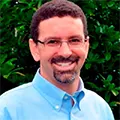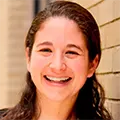
ONLINE COURSE
Life Cycle Assessment:
Why enroll in this course?

Manage Life Cycle Assessment Software and Databases to optimize decision-making.

Quantify the Environmental Impact of a product, process, or service throughout its life.

Apply international ISO 14040 and ISO 14:445 standards to assess environmental impact, minimize risks, and optimize processes in your company.

Engage in two live sessions with MIT instructors, and up to eight live sessions with learning facilitators, industry experts, and peers.

Networking opportunities establish professional connections with industry experts and your cohort.

Access to rich supplementary resources provides additional materials and content for a more thorough educational journey.

Certificate
All the participants who successfully complete their program will receive an MIT Professional Education Certificate of Completion, as well as Continuing Education Units (CEUs)*.
To obtain CEUs, complete the accreditation confirmation, which is available at the end of the course. CEUs are calculated for each course based on the number of learning hours.
*The Continuing Education Unit (CEU) is defined as 10 contact hours of ongoing learning to indicate the amount of time they have devoted to a non-credit/non-degree professional development program. To understand whether or not these CEUs may be applied toward professional certification, licensing requirements, or other required training or continuing education hours, please consult your training department or licensing authority directly.
Course outline
Life Cycle Assessment is the central ingredient to sustainable transitions in manufacturing, cost reduction, and brand identity improvements. With future policy changes on the horizon for a more sustainable planet, this Life Cycle Assessment course paves the way for organizations to comply with the future of work and is the solution to a sustainable brand.
Define the concept of LCA
Explore different types of LCAs
Discover terminology associated with LCAs
Software component: Install and Explore openLCA
Gain a deeper understanding of establishing the purpose and focus for an LCA
Explore the ways in which we set limits for analysis and its effects on the outcome
Introduce the concept of interdependencies when evaluating environmental impact
Software component: Defining Goal and Scope
Learn more about the inventory step and procedures for conducting one
Analyze what data is needed and where this information can be obtained
Understand the challenges of multioutput systems and methods for dealing with them
Software component: Conducting an LCI
Review the procedure for conducting an LCIA in response to objectives outlined in goal and scope
Recognize the main impact categories, how they differ, and how they are measured
Normalize data and account for uncertainty
Software component: Creating a Model and Conducting LCIA (Optional)
Review the different types of uncertainty and their causes
Understand how uncertainty is calculated
Interpret and/or communicate LCA results with relevant disclaimers
Software component: Calculating Uncertainty with open LCA
Explore LCA case studies of everyday products
Boots Shampoo
Alkaline Batteries
Asics Running Shoes
Look at the corporate footprint of a leading company
Corporate Footprinting: Apple Inc.
Examine how LCAs can be used to support policy decisions
Who is this online course for?
Consultants who must be aware of current sustainability policies and how to enact them within an organization.
Companies in industries concerned with meeting or setting carbon targets or hoping to reduce their impact on the environment.
Data scientists and engineers involved in interpreting and analyzing LCAs.
Accounting firms involved in evaluating the greenhouse gas emissions of firms.
Legislative bodies implementing policies regarding sustainable production and procurement practices.
Instructors

Executive Director, MIT Climate and Sustainability Consortium

Associate Dean of Engineering, Associate Professor of the Department of Materials Science and Engineering at MIT, and Co-Director of MIT Climate and Sustainability Consortium
MIT Professional Education in Numbers
+60K
+155
92%
Frequently Asked Questions
Applicable taxes will be calculated and added at checkout in accordance with country/state regulations.
Didn't find what you were looking for? Schedule a call with one of our Program Advisors or call us at +1 315 602 3089.
Register now and boost your professional trajectory.
Enroll by
